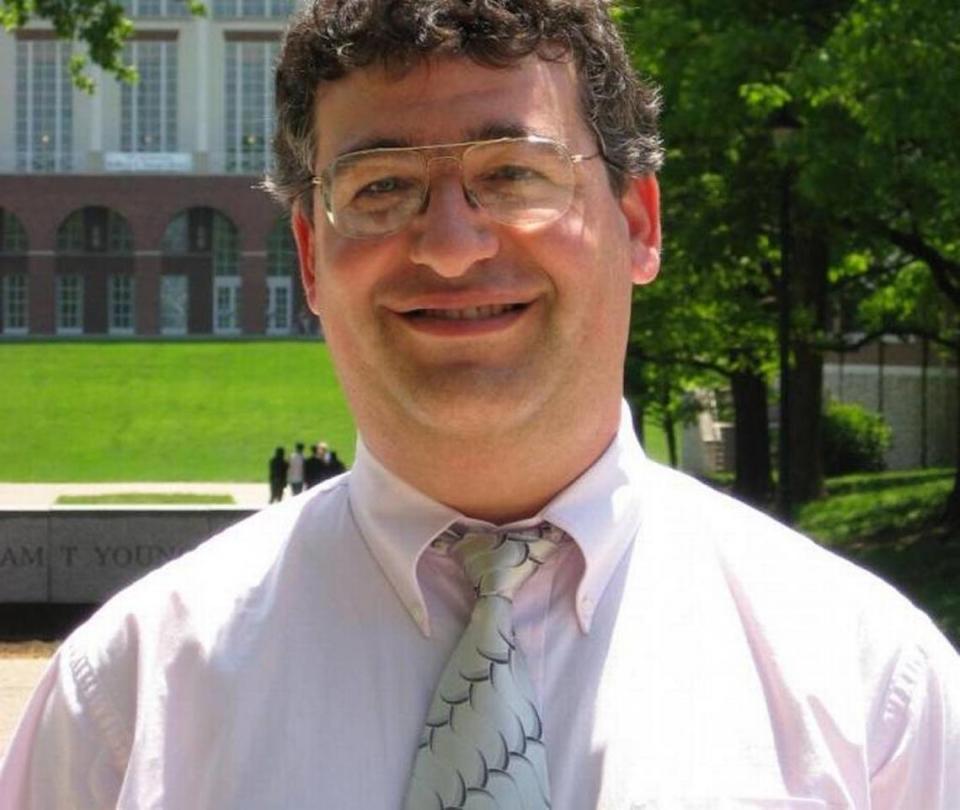UK ‘shoving’ new regulations down employees throats without any proof they will work | Opinion
The UK administration is shoving its plans for reform of UK’s regulations down the throats of the faculty in the name of increasing enrollment and streamlined decision-making, but it provides no evidence that the changes it seeks will accomplish its goals, while completely ignoring the collateral damage that it will impose on the University.
The President has misled student and staff representatives on the Board, the Student Government Association (SGA), and the Staff Senate into believing that the planned changes will increase their voices in decision-making. Under the administration’s plans, the SGA and Staff Senate will be purely advisory. The President will have no obligation to abide by any of their suggestions. The President could have established staff and student consultative bodies at any time in the last 12 years, but he never proposed to do so until this semester, when he needed to distract them from the evisceration of the University Senate (U-Senate).
By contrast, the 18 students in the U-Senate and the three on the Senate Council comprise 15% and 25% of the voting members, respectively. The U-Senate has recently enacted several policy changes specifically in response to student concerns. Under the administration’s plans, student voices will be diminished, not enhanced, because the planned Faculty Senate, whose purview will include academic policy matters and UK Core, will have zero student members.
The U-Senate recognizes the validity of the staff’s concerns about their voices not being heard, but those concerns can be addressed without eviscerating the U-Senate’s policy-making authority. Sadly, the President has ignored the U-Senate’s offers to address staff’s concerns together.
Enhancing the voices of the students and staff does not in any way require abolishing the University Senate and stripping it of its policy-making authority.
The President has asserted that accelerating the establishment of new curricula, as mandated by the Legislature, requires UK to abolish the U-Senate’s oversight over colleges’ curricular proposals. Doing so, however, will create more problems than it will solve.
The U-Senate oversees curricular proposals for two reasons. First, it ensures that faculty from all over this diverse University are aware of what is happening in other parts of the University so that colleges can coordinate their efforts in areas of mutual interest, avoiding waste and duplication. Under the administration’s plans, there will be no mechanism to facilitate intercollege communication among faculty.
Second, the U-Senate requires all curricular proposals to document that the college faculty voted in its favor. This requirement protects faculty (and students enrolled in affected programs) from deans pushing their own agendas against the will of the faculty. Under the administration’s plans, the college faculty are merely advisory to their dean, so the dean will be able to submit curricular proposals unsupported by the college faculty and unreviewed by the Faculty Senate directly to the Provost for approval, with no venue for faculty redress.
The administration proposes that the Provost can fulfill these oversight roles, but it is not credible that his office will be able to keep track of all the goings-on in 18 colleges.
The administration’s plans will inevitably lead to more waste and duplication, reducing UK’s educational quality.
The concentration of power in the President’s hands is the most pernicious aspect of the administration’s plans. For more than 100 years, the U-Senate, representing the faculty, and the administration have shared policy-making authority, with the nature of the policy determining who has final decision-making authority. History has shown that institutions in which power is decentralized, as in American government, are always the most robust in the long term. The administration’s plans will concentrate all power in the President’s hands and allow him to disregard all independent voices at UK. Viktor Órban would be proud.
The President’s proposed changes will seriously damage this unique educational institution. He should achieve his goals by working with the U-Senate and other stakeholders to propose new regulations that everyone at UK can support.

Robert Grossman has been a UK Professor of Chemistry for 30 years and served 2014–2020 as the elected faculty representative on the UK Board of Trustees.


